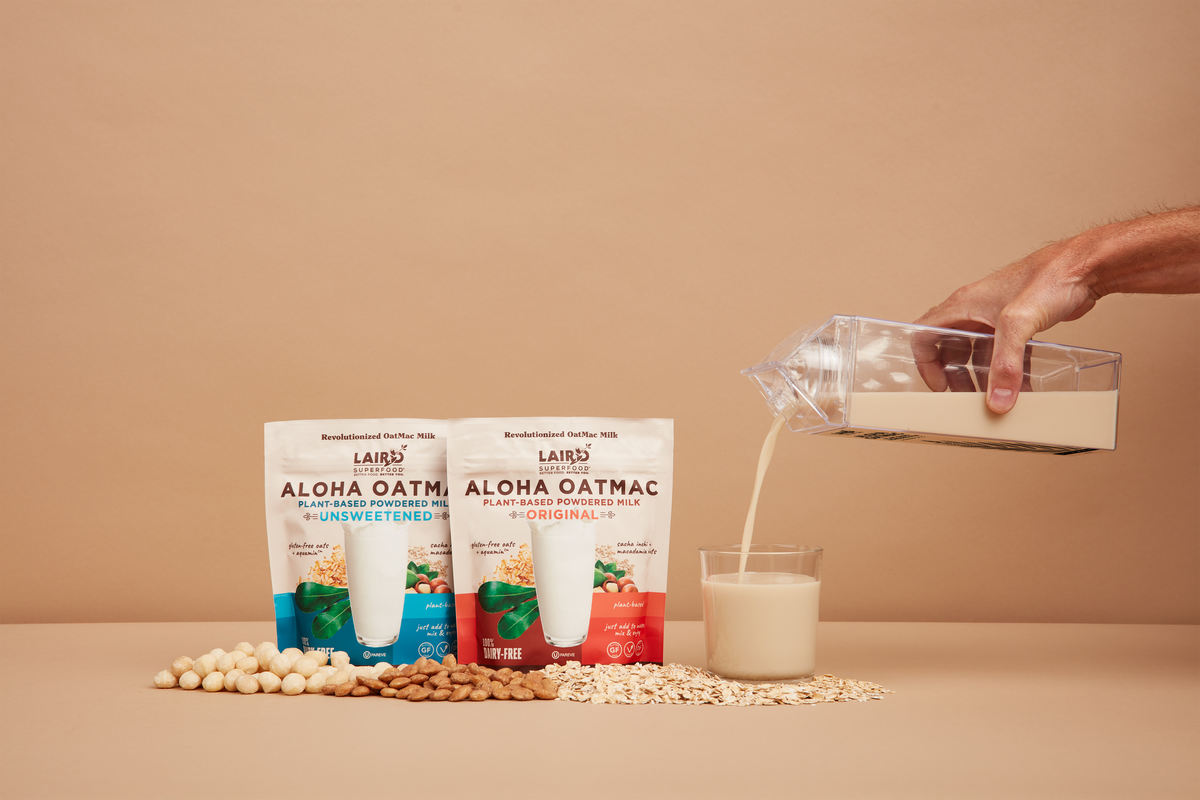Understanding Oat Milk: Your Delicious Guide to a Must-Try Plant-Based Milk
Posted on January 28, 2022

For the past several years, you’ve likely been greeted with the question “regular or oat?” when you’ve asked for milk in your coffee.
Maybe you’ve even seen new containers popping up on the dairy shelves of your local grocery store with vibrant, oat-illustrated labels.
All this oat-centric stuff probably has you thinking—what exactly is oat milk, anyway?
We’re here to dish the must-know details on oat milk, answer your burning questions, and hopefully, provide a little insight to help you decide if you want to reach for the oat milk next time a dairy craving kicks in.
What Exactly is Oat Milk?
Oat milk is a popular, plant-based alternative to cow’s milk (think soy milk and almond milk, etc.).
Currently, it’s a very trendy choice for anyone who loves milk but doesn’t love traditional dairy products. Made with just a few ingredients, this plant-based milk has a creamy texture (making it a barista favorite) and an impressive nutritional profile.
Oat milk is comprised of oats (either steel-cut or whole), water, and maybe a few other ingredients depending on the brand.
You’re probably thinking something like, “OK, I get that, but how exactly do you start with oats and turn them into milk, anyway?”
The process is pretty simple.
Oats are combined with water and set aside to absorb. After, they’re blended and strained with special nut milk bags and tools to reveal a creamy liquid that subs well for traditional milk. Oats tend to absorb water much easier than other types of nut, so once strained, more of the oats themselves are likely to pass through the strainer, contributing to a creamier texture than other types of plant-based milk.
What Does Oat Milk Taste Like?
Let’s get to the good stuff—what does oat milk taste like?
While taste is pretty subjective, we’ll say that this creamy milk offers a sweet, thick taste that leaves a subtle, oaty flavor on your tongue with a hint of nuttiness. Many have said that oat milk tastes more like traditional cow’s milk than other plant-based milks, but that’s more of a per-drinker opinion, we think.
How Long Does Oat Milk Last?
While all oat milk brands are different, most commercial oat milks will last in the refrigerator about 7-10 days after opening. Not sure if your oat milk is still good? We suggest the regular milk routine to check whether it’s safe to drink—you know the drill, check the date, open, and give it a whiff.
Just like regular milk, oat milk will likely develop a sour or tart taste (maybe even a little acidic) when it’s no longer fresh.
At Laird Superfood, our OatMac milks come in powder form and are shelf stable. After adding water, it’s best used within 5 days.
Oat Milk Versus the Rest: What are the Big Benefits of Oat Milk?
Deciding which type of milk is best for you is a personal decision—it’s all determined by your taste, preferences, and dietary needs. That being said, oat milk can offer some unique benefits that other milks—plant-based or traditional—cannot.
For example:
- Oat milk is dairy-free. This is especially advantageous for those who are dairy or lactose intolerant.
- Oat milk is soy-free, too. Those with this common allergy who want to opt for plant-based milks can enjoy oat milks without the concern of an allergic reaction. As always, check the ingredient list on your oat milk to make sure it’s safe for you and your family’s consumption.
- Oat milk is a vegan and usually gluten-free option. Though it’s not the only vegan or gluten-free milk (there are tons to choose from), oat milk is a 100% vegan product, with most varieties (including Laird’s) also being gluten-free.
- Oat milk is creamy and closely resembles the texture of cow’s milk. Because oats absorb water so well, the straining process leaves behind a much creamier liquid than other plant-based milks. For those who love a plant-based option but don’t like their milk to be watery or thin, oat milk is a must-try.
So, should you opt for traditional dairy milk? Almond or coconut? Maybe soy, hemp, or rice?
The options might seem endless, but it’s all up to you. If you’re ready to give oat milk a try, we think it’s worth a shot. Maybe we’re being biased, but we think the benefits speak for themselves.
So, next time you’re about to pour a cup of milk into your cereal, order a latte, or want to give your favorite recipe a shot, reach for oat milk and see what you think.
If you’re looking for a great oat milk at home, be sure to check out Laird Superfood’s Aloha OatMac Milk, as well as our OatMac Superfood Creamer. Enjoy the rich creaminess you’ll love, without sacrificing on ingredients.










1 comment